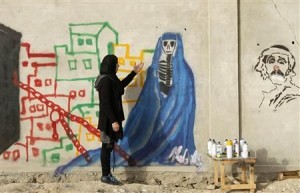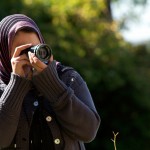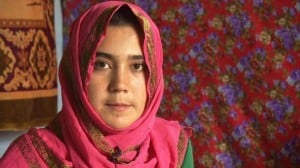While the city of Timbuktu, Mali, is celebrating the end of the Islamist rule, one woman recounts her ordeal, as she was tortured after being caught in public with her boyfriend. In another interview, three Malian women share their experiences under the Ansar Dine regime.
Bangladeshi women from the impoverished village of Basatpur have been travelling for two decades to Mumbai to make a living there as dancing girls, but the local government claims this is not migration, but human trafficking.
At least 25 women protesters have been sexually assaulted in Cairo, Egypt, since violence erupted last week. Activists think that most of these assaults are actually organized.
The Sun features the stories of four British women, who chose Islam. BBC Three also aired a documentary last week titled Make Me a Muslim, which featured five British converts and their stories.
Shops that employ both men and women in Saudi Arabia are now required to build separation walls to enforce segregation.
The BBC shares the story of 6-year-old Naghma, an Afghan girl who was sold in marriage to a relative, because her family was unable to pay their debt.

The Kyrgyz President has signed a bill increasing the maximum prison term for bride kidnapping.
An upcoming roundtable on polygyny in Senegal is causing a stir among the predominantly Muslim population, who suspect that the government is planning to ban the practice of a man marrying multiple wives.
The Saudi Interior Minister has issued a decree that allows Saudi women to be employed at the General Investigation Bureau.
Latifa Azizi is on her way to win the hit talent show Afghan Star, but as her popularity is rising, so are the threats to her and her family.
Ethiopia’s Bahardar University bans the hijab and niqab from campus, and has denied Muslim students to perform prayers on campus.
Female Islamic leadership is on the rise in Sweden, especially in youth organizations. This article stems from the volume Women, Leadership, and Mosques edited by Masooda Khan and Hilary Kalmbach.
Thomson Reuters Foundation features over a dozen interviews with Egyptian, Tunisian and Yemeni women from all walks of life on the revolution as a part of a project that is called Women of the Revolution. To keep the conversation going, the public is invited to share in their own thoughts on this topic.
Months after the devastating fire in a garment factory in Bangladesh, another 7 female workers have been killed in yet another fire in a garment factory last Saturday.
Underwraps model Hajer Naili says her work with a Muslim fashion agency is freeing.
A Rohingya refugee has given birth on a boat with over a hundred other refugees on their way from Burma to Thailand.
According to the International Labor Organization barely one fifth of the Pakistani women are employed in paid positions; an important barrier for Pakistani women to obtain employment is the lack of safe and secure public transportation.
There is a low representation of women in Kenyan politics, with the upcoming elections this might change, but according to Hamisa Zaja, a politician from the coastal region, female candidates remain under the attack from their male opponents and society.
The decision by the Gazan-based Al Aqsa University to implement an Islamic dress code for female students, has been strongly criticized by the West Bank-based Palestinian Ministry of Higher Education, who even attempted to nullify the decision.
Despite the fact that Moroccan women are struggling to gain political power, their importance and authority in the religious field is fast increasing.
An increasing number of Pakistani women are abandoned by their British-Pakistani husbands in Pakistan and forcibly separated from their children, who are living in the UK.
Activists are trying to make sexual education a mandatory part of Indonesia’s national curriculum.
Al Jazeera anchor Khadija Bengana is the victim of a smear campaign; dozens of media outlets published statements last week attributed to her in fake social-media accounts.
With the situation in large parts of Somalia stabilizing, many Somali’s, predominantly women, are returning to help to rebuild their home country.
Every year approx. 12 to 15 “honor killings” are reported in Germany, predominantly in the Muslim community, Deutsche Welle features an article on the reasoning behind and the prevention of these crimes.
Education is the main reason why many Kashmiri’s are getting married later, but this conflicts with societal pressure to marry early. Single Kashmiris, especially women, face a strong stigma in society.
Mahmoud al-Halabi and Nour al-Hassan are newly-weds, who are actively fighting together against the Syrian regime.
Female lawyers in Turkey are now allowed to don the hijab in court.
Selma Alameri refused to kiss Sean Lowe on the hit show The Bachelor out of respect for her conservative Iraqi Muslim family.












